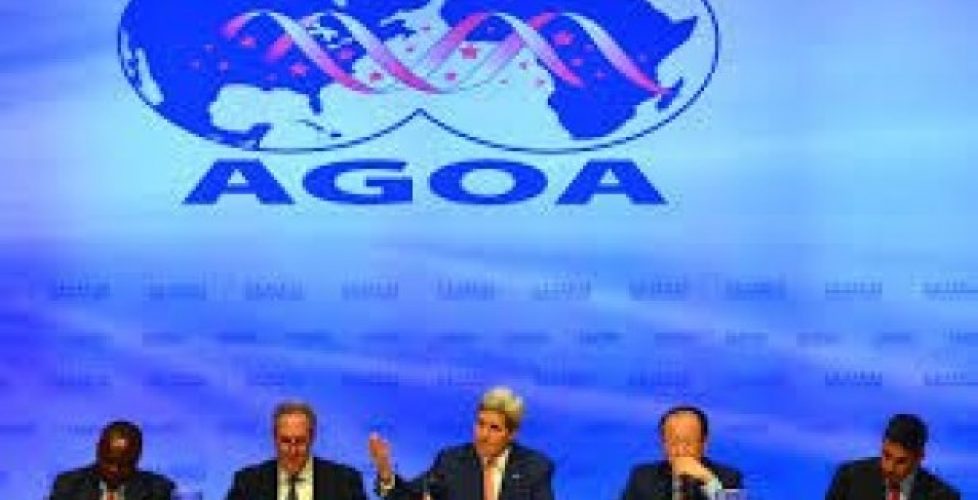Time is Running Out to Renew AGOA (African Growth & Opportunity Act)
If the renewal process is delayed to Agoa’s expiration date of September 30 of this year, it will undermine much of what the legislation has achieved, especially in the apparel sector.
Apparel and footwear companies are the largest supporters of the several hundred thousand direct jobs that Agoa has created in Africa—not to mention the many more indirect jobs. Though, with the uncertainty surrounding the renewal of Agoa as well as the now-crunched timeline, these investments and jobs are in jeopardy.
U.S. apparel and footwear companies plan production lines and place orders months in advance so that shirts from Lesotho and jeans from Kenya, for example, will be on the shelves in American stores in time for the next shopping season. As the deadline looms closer, these companies will face too much uncertainty to place their orders from the continent.
Uncertainty about when Agoa will be renewed similarly leads to uncertainty by U.S. companies about whether to invest in African companies. This is a detriment to development on the continent and threatens to undermine the goodwill that Agoa has created for the U.S. in Africa.
Importantly, Africa is not the only beneficiary of this key trade legislation. According to the United States Trade Representative, exports to Africa support more than 120,000 jobs in the United States. Without predictability in the U.S.-African commercial relationship it will be difficult to grow, let alone sustain, this number.
Agoa renewal must come first; enhancements, while welcome now, can come later.
The broad bicameral and bipartisan support that Agoa enjoys in Congress makes it quite unique. It is encouraging that new committee chairs, such as Rep. Paul Ryan of the House Ways and Means Committee and Senator Orin Hatch of the Senate Finance Committee, have spoken out in support of an Agoa extension. The African diplomatic corps in Washington is in full support of Agoa’s extension as are an array of non-governmental organizations, businesses, think tanks and faith-based organizations, which make up the so-called Agoa coalition.
To its credit, the Obama administration called for a 15-year extension of Agoa, through September 30, 2030, in the budget it sent to Congress last week.
Members of Congress need to approach a long-term Agoa renewal with a sense of urgency. If the administration and Congress can agree on enhancements for the legislation, that would be welcome. However, the time has long passed for protracted negotiations on enhancements and new conditionalities.
Given Africa’s growing importance to the U.S., symbolized vividly by last year’s successful Africa Leaders’ Summit, surely it is possible to address enhancements to Agoa later in this session of Congress without having to wait for the legislation’s renewal at some point in the future..
At the same time, various members of the Agoa coalition have views about whether the legislation should be extended on its own or as part of a larger trade package. That’s fine, but a very near-term extension should be the priority, one way or another.
How might the trade relationship change post-Agoa renewal?
Once a renewed Agoa is in place, there is a need to begin a conversation with our partners on the continent about how we transition from Agoa to a more reciprocal trade relationship that provides more benefits and protection to American investors and exports.
With the European Union having established the framework for free trade agreements with 35 African nations, known as Economic Partnership Agreements, the U.S. is in danger of being placed at a long-term competitive disadvantage in most African markets. It is already beginning to happen in South Africa, which has had an FTA with the EU since 1999.
The U.S. and the 40 countries in sub-Saharan Africa that participate in Agoa are increasingly important to each other for reasons that relate to commerce, security, governance and heritage, among other factors. Extending Agoa as soon as possible is vital to ensuring that the U.S.-African relationship remains relevant and as strong as possible.
Witney Schneidman is a nonresident Fellow at the Africa Growth Initiative at Brookings and Senior International Advisor for Africa atCovington & Burling LLP. He also served as Deputy Assistant Secretary of State for African affairs. The piece originally appeared on the Brookings Africa Growth Initiative blog Africa in Focus.

